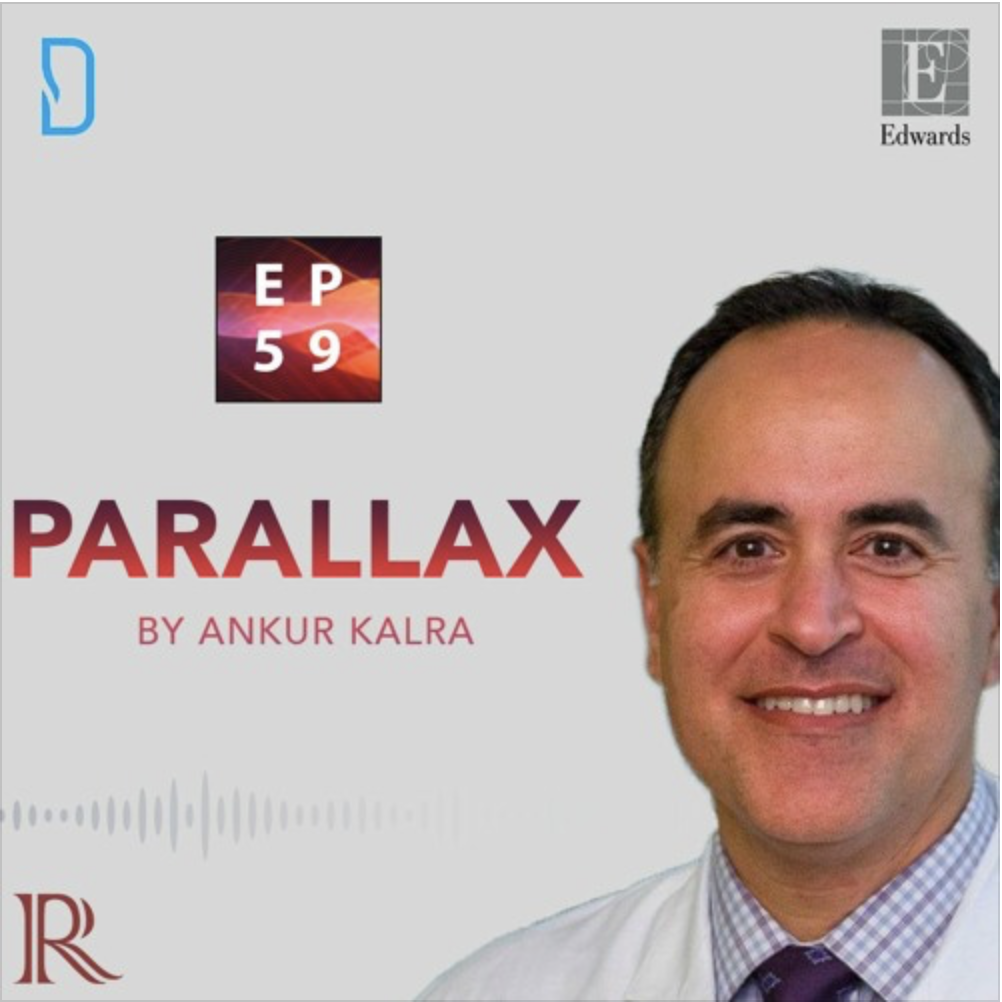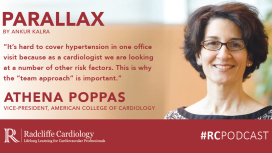
In this AHA 2021 episode of Parallax, Dr Ankur Kalra’s guest is Dr Amit Khera, Professor and Director of Preventive Cardiology at UT Southwestern Medical Center, Dallas and Vice Chair of the Scientific Sessions.
For this week’s show, Dr Khera selected three thought-provoking late-breaking trials that will inform or change clinical practice. Ankur and Amit discuss how the AVATAR trial will influence guidelines, and whether these findings could be translated to TAVR. Most importantly, they discuss how AVATAR’s results could inform patient decisions.
Next, Dr Khera highlights a randomized trial that was designed to address the needs of a larger population. The China Rural Hypertension Control Project offers exciting insights and an innovative framework for relying on social healthcare work.
Lastly, Dr Kalra and Dr Khera discuss a trial that investigated the LDL-cholesterol lowering efficacy of MK-0616. This oral PCSK9 Inhibitor may open the door for more patients in the future.
What were the key findings? What are the take-home messages? How will these 3 trials foster new opportunities for patients?
Trials covered in detail include:
• Aortic Valve Replacement versus Watchful Waiting in Asymptomatic Severe Aortic Stenosis: The Avatar Trial
• A Cluster Randomized Trial of a Village Doctor-Led Intervention on Blood Pressure Control: China Rural Hypertension Control Project
• The Clinical Safety, Pharmacokinetics, and LDL-Cholesterol Lowering Efficacy of MK-0616, an Oral PCSK9 Inhibitor
Questions and comments can be sent to “podcast@radcliffe-group.com” and may be answered by Ankur in the next episode. Guest @dramitkhera hosted by @AnkurKalraMD. Produced by @RadcliffeCARDIO.
Brought to you by Edwards: www.edwardstavr.com

Brought to you by Edwards: www.edwardstavr.com


They discuss the importance of preventative medicine, their experience of reducing hypertension with non-pharmaceutical and pharmaceutical methods, and the significance of the integrated “team approach” when treating comorbid conditions such as hypertension. Athena also shares her thoughts on cardiologists’ responsibility to shape their patients’ lifestyle choices.
Hosted by @AnkurKalraMD. Produced by @RadcliffeCardiology.

Chest pain is one of the most common reasons for an emergency room visit in the US, with almost 6 million ER visits annually, yet there is no consensus on how to compare the results from various hscTn assays. Tune in to hear Santiago outline the advantages and limitations of using hscTn as a standard biomarket to evaluate patients with suspected ACS in the ER.
Hosted by @AnkurKalraMD. Produced by @RadcliffeCardiology.






What is the Global Cardiology University project? How does Dr Anavekar encourage trainees to re-examine their role in patient care? What is his advice to our listeners?





